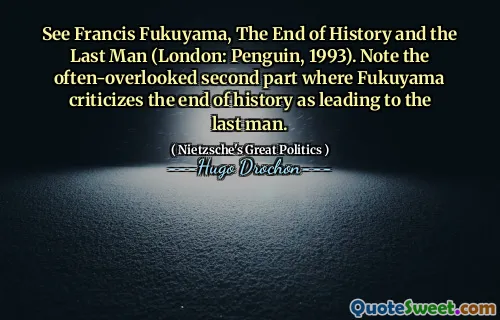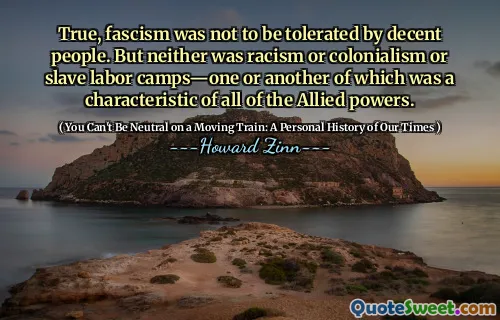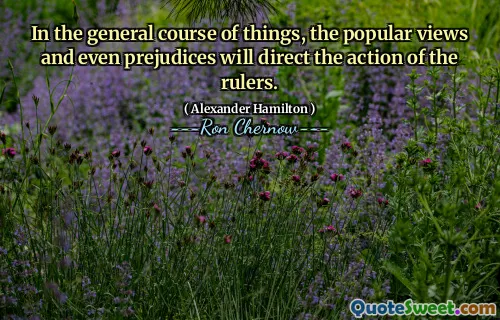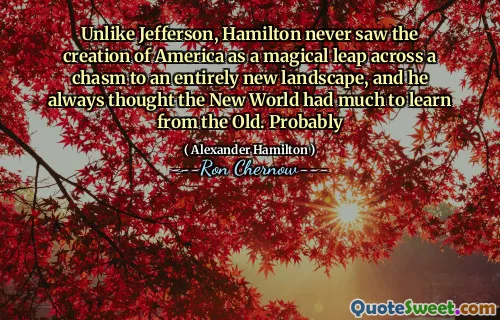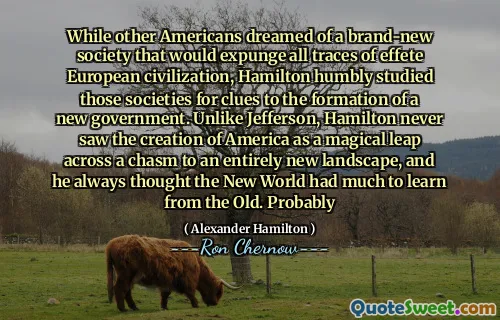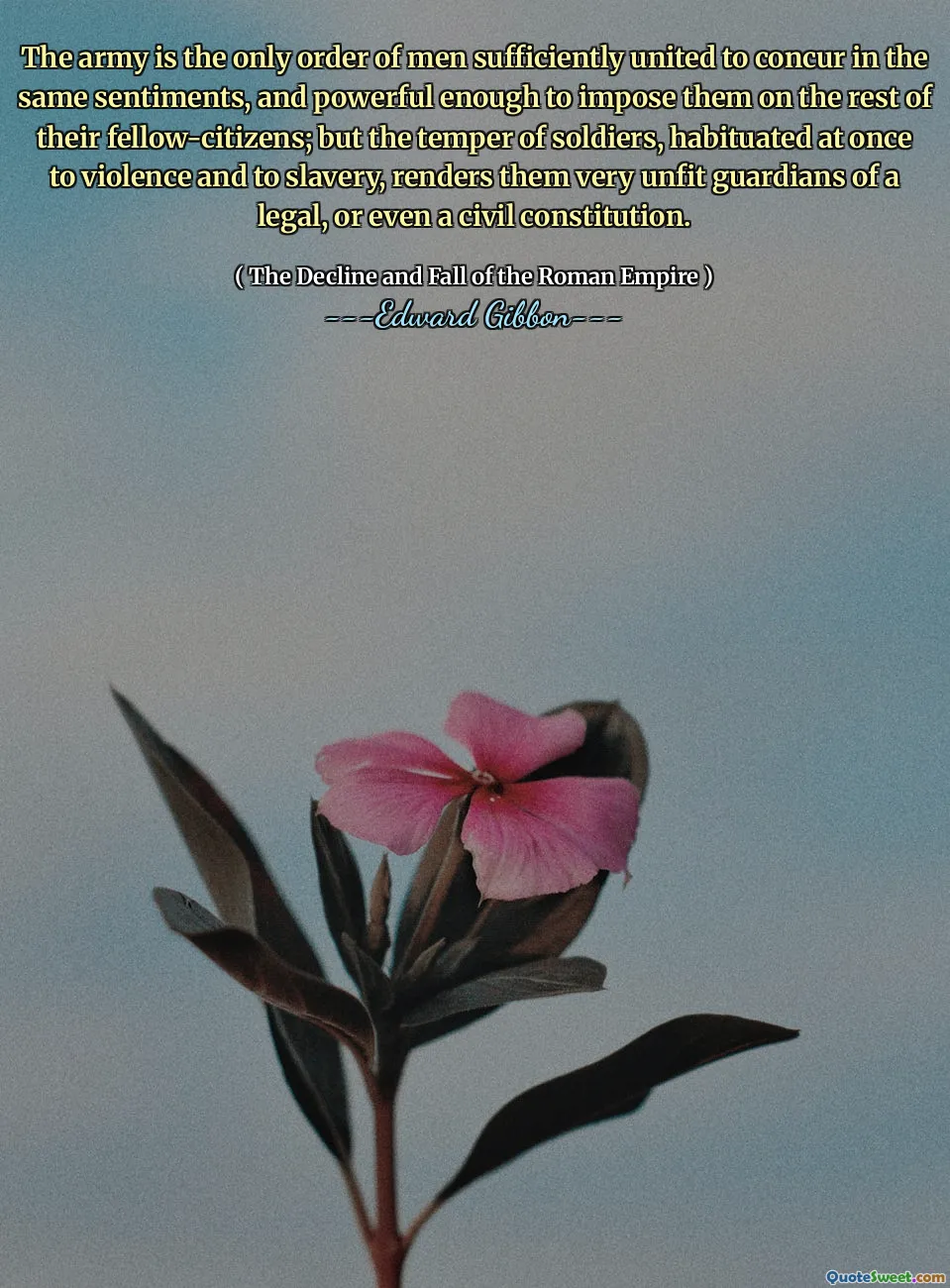
The army is the only order of men sufficiently united to concur in the same sentiments, and powerful enough to impose them on the rest of their fellow-citizens; but the temper of soldiers, habituated at once to violence and to slavery, renders them very unfit guardians of a legal, or even a civil constitution.
This quote by Edward Gibbon offers a profound critique of the military's role in a civil society. It highlights the paradoxical nature of armies: while they are highly cohesive and capable of enforcing collective sentiments, their very nature—trained to violence and disciplined to obedience—renders them potentially unsuitable as guardians of civil liberties or democratic institutions. The military's unity and strength are assets in times of external threats or wartime, providing a disciplined force that can mobilize swiftly and act decisively. However, this same unity, coupled with habituation to violence, can erode the foundational principles of civil governance, such as individual rights, rule of law, and civil liberties. Soldiers trained for combat are conditioned to prioritize discipline and action over dialogue and compromise, which could threaten the democratic process when polarized or unstable. Historically, many regimes have capitalized on military loyalty to cement authoritarian rule, and the reliance on armies to uphold civil order sometimes results in military overreach or suppression of personal freedoms. The essence of this critique is a warning: while armies may serve a state externally, their internal conditioning and discipline could inadvertently undermine the civil societal structures that protect individual liberties. For a society to flourish, a careful balance must be struck—using military power judiciously without allowing it to overshadow or destabilize civil institutions. When armies become guardians of the state rather than servants of the people, the very foundation of democracy can be compromised. This insight remains relevant today as nations navigate the delicate relationship between civil authority and military power.

